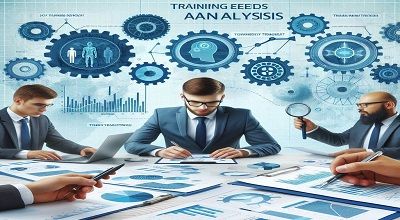Training Needs Analysis Report
Executive Summary
This report presents the findings of a Training Needs Analysis (TNA) conducted within [Organization Name]. The purpose of the analysis was to identify the current skills, knowledge gaps, and training requirements among employees to enhance performance and meet organizational objectives.
Methodology
Data Collection
- Surveys: A comprehensive survey was distributed to all employees to gather insights into their current skills, knowledge, and training preferences.
- Interviews: Key personnel and department heads were interviewed to gain a deeper understanding of specific departmental needs.
- Performance Data: Existing performance data, including key performance indicators (KPIs), was analyzed to identify patterns and areas for improvement.
Analysis Process
- Identified Skills: The analysis focused on identifying both technical and soft skills required for effective job performance.
- Knowledge Gaps: Examined gaps in knowledge and competencies that hinder optimal performance.
- Training Preferences: Collected data on preferred learning styles and formats.
Stakeholder Involvement
- Engaged key stakeholders to ensure alignment with organizational goals.
- Encouraged open communication to gather diverse perspectives.
Findings
Technical Skills
- Identified gaps in [specific technical skills] that are crucial for [relevant departments].
- Employees expressed a need for advanced training in [technology/tools] to keep up with industry standards.
Soft Skills
- Communication skills were highlighted as an area for improvement across various departments.
- Teamwork and leadership skills need reinforcement for effective collaboration.
Knowledge Gaps
- Recognized gaps in understanding [specific knowledge areas] that are critical for [departmental functions].
- Employees demonstrated a need for continuous learning to stay updated with industry trends.
Training Preferences
- The majority of employees expressed a preference for interactive workshops and hands-on training sessions.
- E-learning platforms were identified as a favored method for ongoing skill development.
Recommendations
Customized Training Programs
- Develop tailored training programs to address specific technical and soft skill gaps identified in the analysis.
Communication Workshops
- Implement communication workshops to enhance interpersonal skills and foster effective collaboration.
Leadership Development Programs
- Introduce leadership development programs to nurture future leaders within the organization.
E-Learning Platforms
- Invest in user-friendly e-learning platforms to facilitate ongoing learning and development.
Regular Skill Assessments
- Establish a system for regular skill assessments to ensure continuous improvement and adaptation to evolving job requirements.
Implementation Plan
Short-Term
- Immediate launch of workshops addressing critical skill gaps.
- Introduction of e-learning modules for essential technical skills.
Medium-Term
- The rollout of communication and leadership development programs.
- Conducting follow-up assessments to measure the impact of training initiatives.
Long-Term
- Integration of ongoing training into the organizational culture.
- Continuous review and adaptation of training programs based on evolving business needs.
Final Conclusion
This Training Needs Analysis provides valuable insights into the current state of employee skills and knowledge within [Organization Name]. The recommendations outlined in this report aim to bridge identified gaps and contribute to the overall growth and success of the organization. Regular assessments and a commitment to continuous learning will be essential in maintaining a skilled and adaptive workforce.
